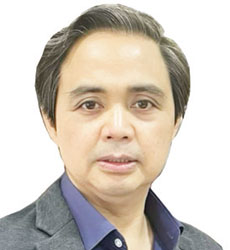"ECHO chamber" is a term used for a group of individuals who hold the same beliefs amplified by echoing each other even if the current situation is unfolding entirely differently from their perspective. Since they are shielded from contrary views, they fail to escape their pre-existing beliefs. Echo chambers blindside people of the real situation because they are cocooned with like-minded cronies. An illustrative case is when the US Democrats miserably lost to Donald Trump and his Republican Party in last November's elections because they stuck to their predetermined belief that American voters are enamored with democracy, diversity and inclusion. They re-echoed these assertions within their party without realizing that many voters wanted lower prices, jobs and a crackdown on illegal immigrants.
Echo chamber is no different from groupthink, which was coined by Harvard political scientist Graham Allison in his book on the Cuban missile crisis. Allison claimed that a tight-knit set of public officials is prone to agreeing with prevailing sentiments to ensure unanimity. The group fails to explore other options and overestimates the odds of their decisions. During the Vietnam War, Pentagon officials chose to ignore that the military offensive against the Viet Cong was failing. The war resulted in massive troop casualties and dislocation of the civilian population. Security advisers to US President Lyndon B. Johnson insisted that the campaign would end successfully. No one in his Cabinet opposed the "groupthink" despite ominous signs on the wall.
Register to read this story and more for free.
Signing up for an account helps us improve your browsing experience.
ContinueOR
See our subscription options.


